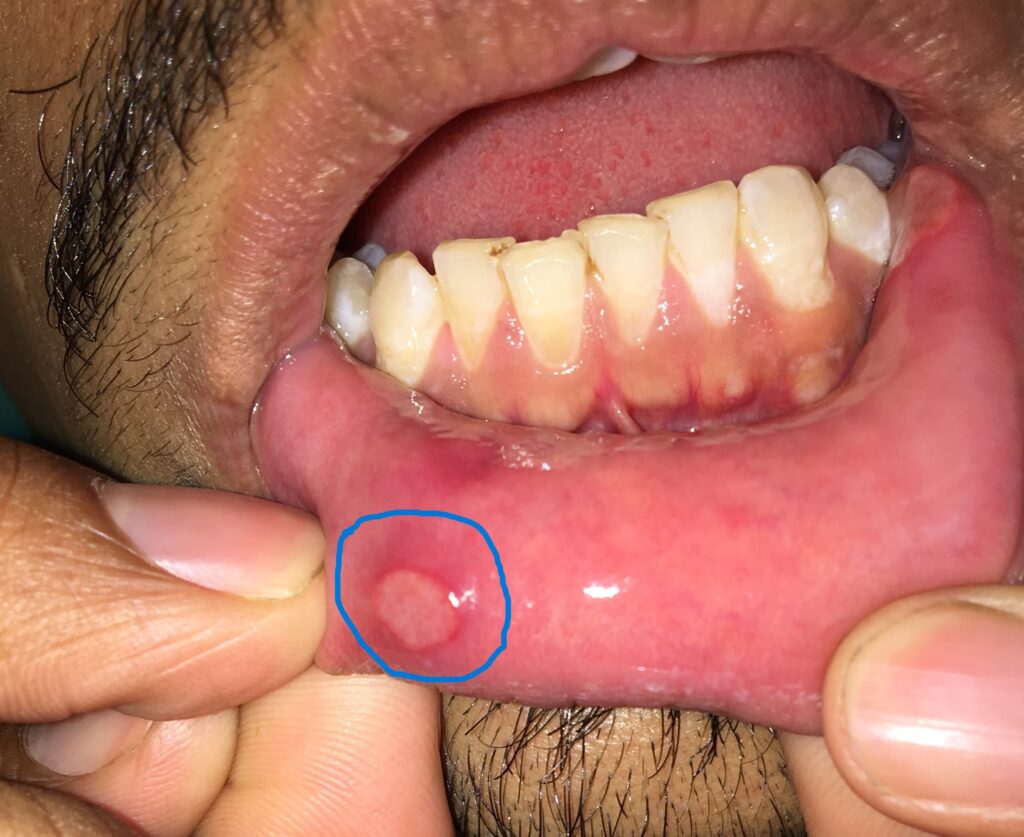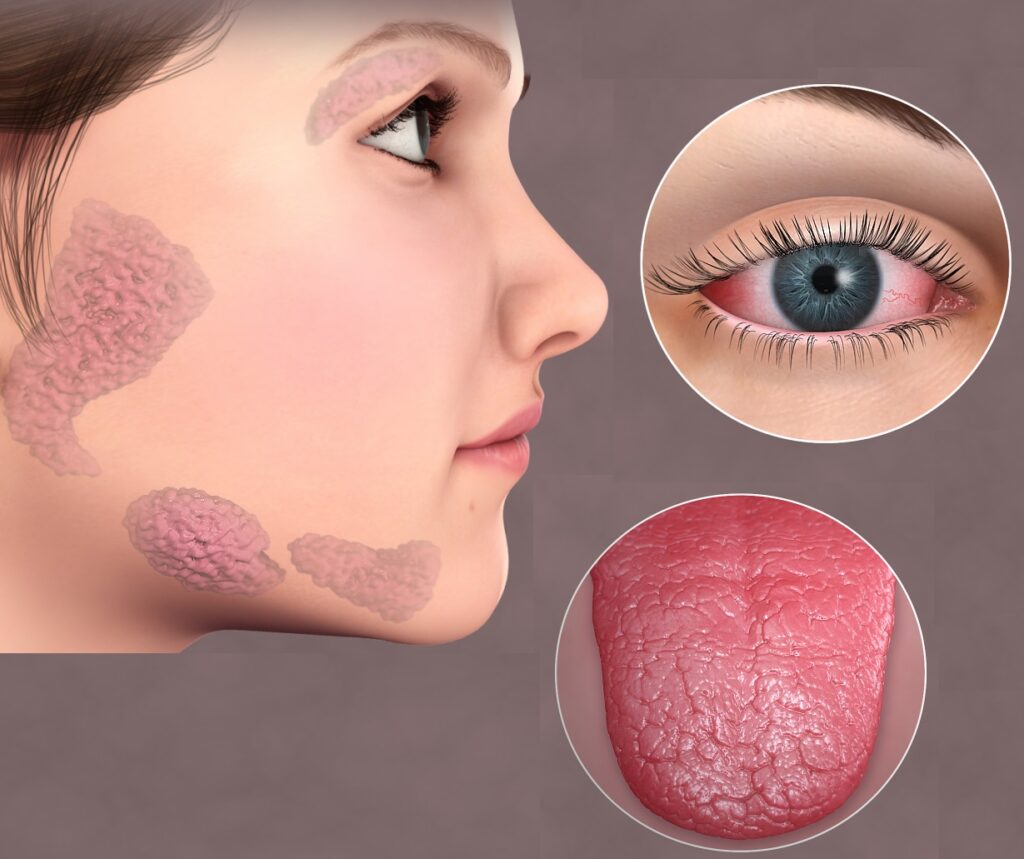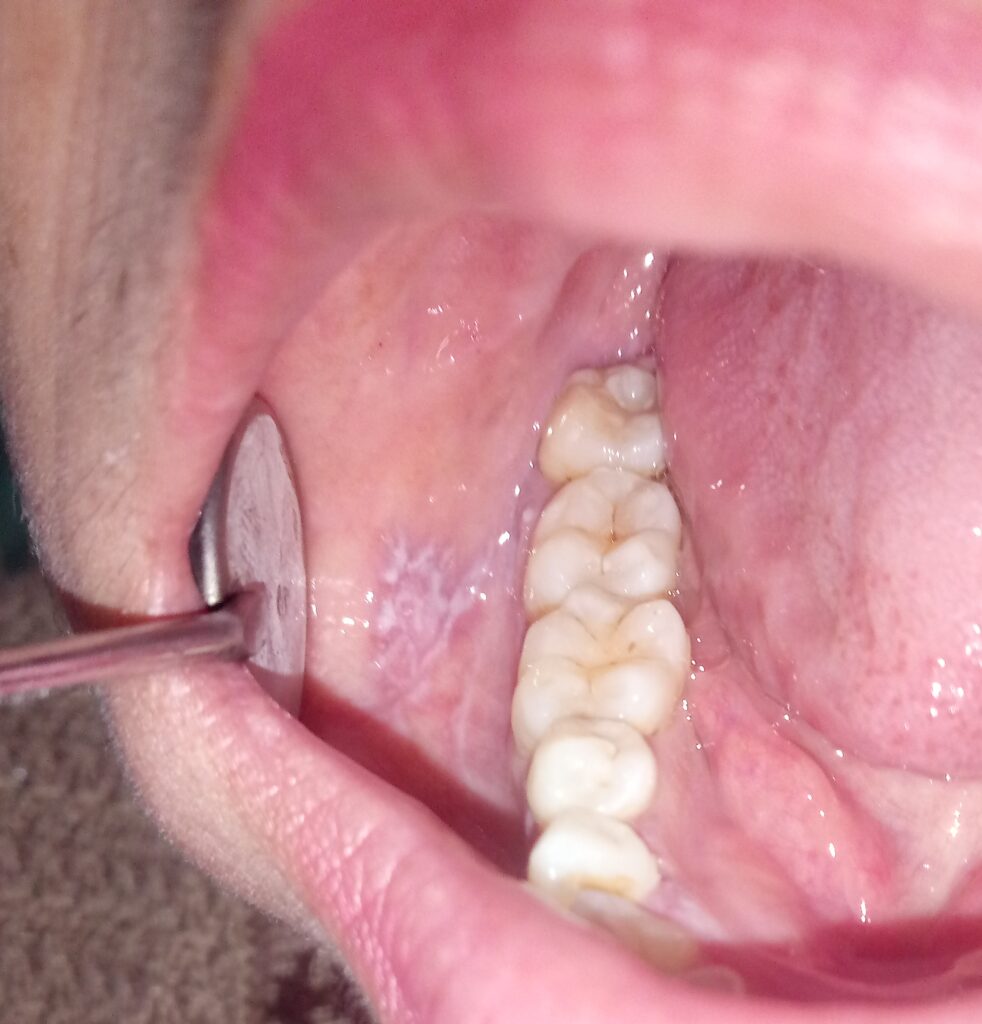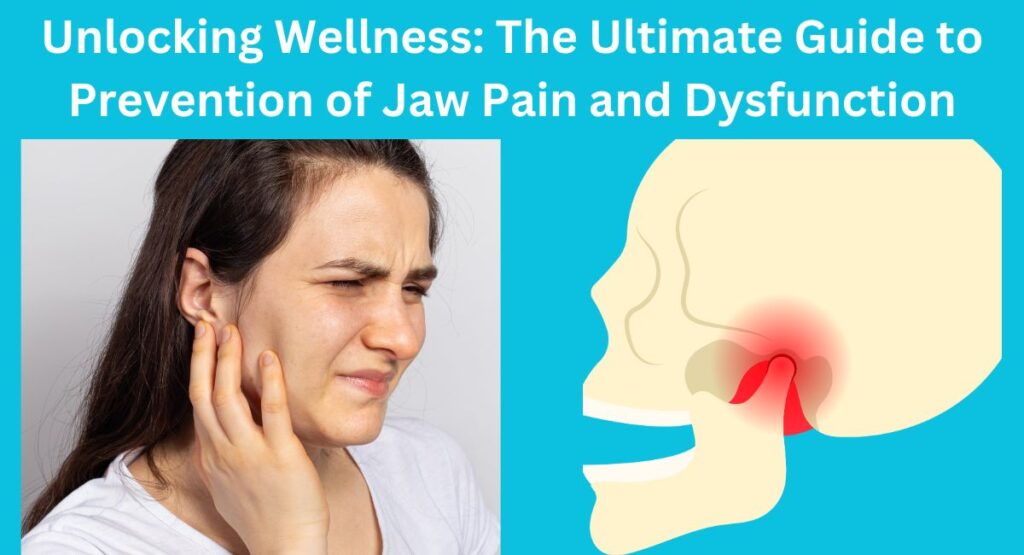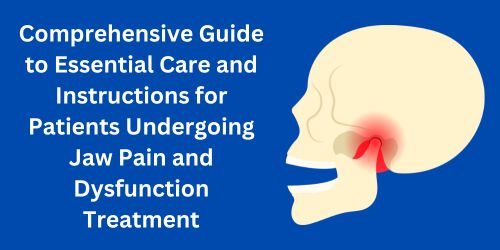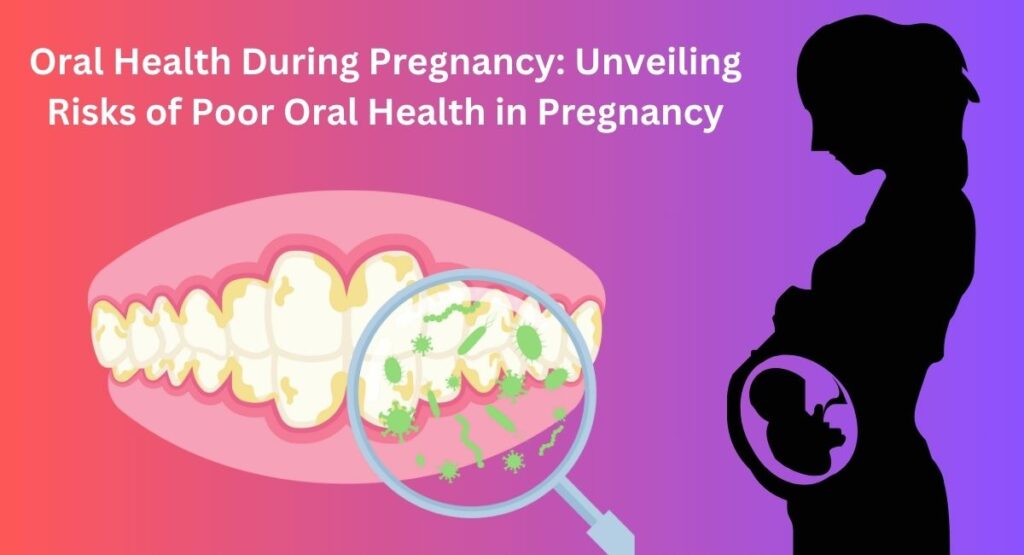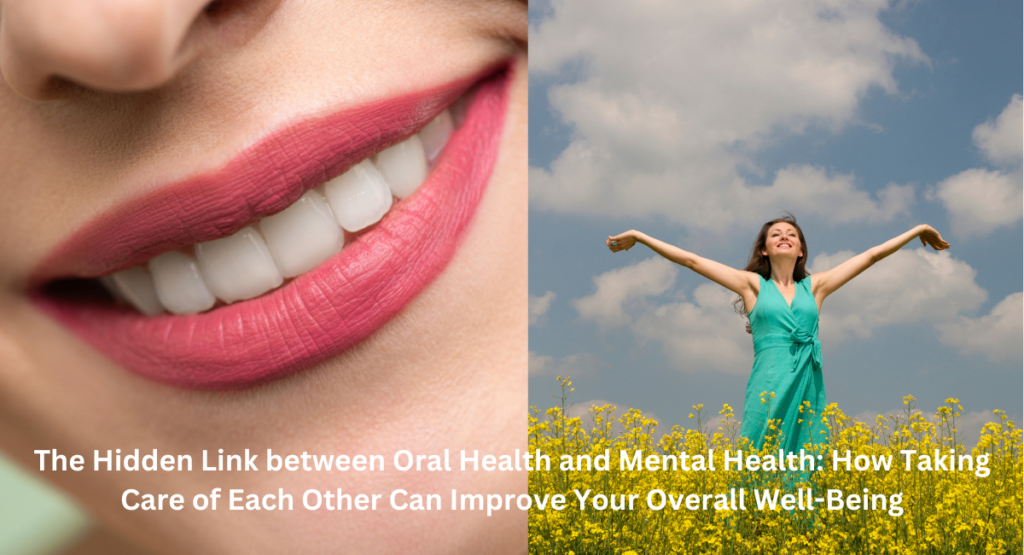
Link between oral health and mental health
Good oral health is often associated with a beautiful smile and fresh breath. However, the importance of oral health goes beyond aesthetics and hygiene. Research has shown a strong connection between oral health and mental health. Oral health and mental health are two interrelated aspects of overall well-being. Poor oral health can have a negative impact on mental health, and vice versa. In this article, we will explore the hidden link between oral health and mental health and how caring for both can results in a remarkable synergy, enhancing not only each other but your overall health and quality of life.
The Oral-Systemic Connection
It is well-established that oral health is closely connected to your body’s overall health. Poor oral hygiene can lead to various dental problems such as cavities, gum disease, and tooth loss. However, the effects of oral health issues extend beyond the mouth and can have a profound impact on your systemic health. The mouth serves as a gateway to the rest of the body, and oral infections and inflammation can contribute to or exacerbate other health conditions, including cardiovascular disease, diabetes, and respiratory infections.
Oral Health and Mental Health Connection
In recent years, research has revealed a compelling link between oral health and mental health. Several studies have shown that individuals with poor oral health are more likely to experience symptoms of depression and anxiety. This connection can be attributed to various factors:
- Pain and Discomfort: Dental problems such as toothaches and gum disease can cause chronic pain and discomfort, which can lead to feelings of distress and sadness. The constant presence of pain can significantly impact a person’s quality of life and mental well-being.
- Self-esteem and Social Confidence: A healthy, attractive smile can boost self-esteem and confidence. Conversely, dental issues like missing teeth or bad breath can lead to social anxiety and decreased self-esteem, potentially contributing to mental health challenges.
- Inflammatory Response: Inflammation in the body, including oral inflammation, has been linked to increased levels of inflammatory markers in the brain. This chronic low-grade inflammation may play a role in the development of mental health disorders.
- Health Behaviour and Self-Care: Maintaining good oral health often involves adopting healthy habits such as regular brushing, flossing, and dental check-ups. These routines can promote a sense of self-care and discipline, which can positively affect mental well-being.
- Additionally, certain medications used to treat mental illnesses can have side effects that affect oral health.
How Oral Health Affects Mental Health
Maintaining good oral health is not just about preventing cavities and gum disease. It is also about preserving our mental well-being. Poor oral health can have a negative impact on mental health. People with poor oral health may experience pain, embarrassment, and difficulty socializing. This can lead to social isolation and loneliness, which can worsen mental health conditions such as depression and anxiety.
In addition, poor oral health can have a negative impact on self-esteem and quality of life. People with poor oral health may feel ashamed of their smile and avoid smiling or speaking in public. This can make it difficult to maintain relationships and succeed in school or at work.
The discomfort and pain associated with dental issues can lead to irritability, difficulty concentrating, mood swings, and overall irritability, all of which can negatively impact your mental well-being. Additionally, research has shown a link between tooth infections and an increased risk of mental health problems such as anxiety and depression.
The negative impact on our mental health can further exacerbate our dental issues, creating a vicious cycle. Therefore, it is essential to prioritize dental health to avoid these detrimental consequences on our mental well-being.
How Mental Health Affects Oral Health
Mental health conditions, such as depression and anxiety, can have profound impact on our oral health. Individuals suffering from depression may experience a lack of motivation or energy to take care of their teeth. People with these conditions may experience low energy, lack of motivation, and difficulty concentrating, which can lead to neglect of oral hygiene practices such as brushing and flossing, which can result in tooth decay and gum disease.
They may also be more likely to engage in unhealthy behaviors that can harm their oral health, such as smoking, excessive alcohol consumption, and overeating sugary foods.
Mental health conditions, on the other hand, can cause teeth grinding and jaw clenching, known as bruxism or clenching. This can lead to tooth damage, jaw pain, and headaches.
People with depression may be more likely to experience dry mouth, which can increase the risk of tooth decay and gum disease. Therefore, it is crucial to address mental health issues to prevent further damage to oral health.
Strategies For Maintaining Good Oral Health and Mental Well-Being
To maintain good oral health and promote mental well-being, there are several strategies we can implement:
- Establish a regular dental hygiene routine: Brushing and flossing our teeth twice a day is crucial for maintaining good oral health. This simple routine can help prevent tooth decay, gum disease, and other dental problems.
- Eat a healthy diet: Avoid sugary foods and drinks, and eat plenty of fruits, vegetables, and whole grains.
- Visit the dentist regularly: Regular dental check-ups and cleanings are essential for detecting and addressing dental issues early on. A dentist can also provide guidance on maintaining good oral hygiene and offer treatments tailored to individual needs.
- Practice stress management techniques: Stress can have a negative impact on both oral health and mental well-being. Engaging in activities such as exercise, yoga, meditation, and deep breathing can help reduce stress levels and promote overall well-being.
- Get enough sleep: Most adults need 7-8 hours of sleep per night.
- Seek professional help: If you are struggling with mental health issues that are affecting your oral health, it is important to seek help from mental health professionals. They can provide support and guidance to manage your mental health and its impact on your oral health.
The Role of A Mental Health Dentist In Improving Overall Well-Being
A mental health dentist is a professional who not only focuses on the dental health of their patients but also considers the psychological impact of oral health problems. They understand the interplay between oral health and mental health and provide specialized care to address both aspects. A mental health dentist can create a safe and comfortable environment for patients with dental anxiety, providing strategies to manage their fears. They also work closely with mental health professionals to develop comprehensive treatment plans that address both the dental and psychological aspects of their patients’ well-being.
Conclusion
Oral health and mental health are two interrelated aspects of overall well-being. Poor oral health can have a negative impact on mental health, and vice versa. Remember, your oral health is not solely about your teeth; it’s a fundamental component of your holistic well-being.
There are a number of things you can do to improve your oral and mental health, such as maintaining good oral hygiene habits, visiting your dentist for regular checkups and cleanings, eating a healthy diet, getting enough sleep, and managing stress.
By seeking professional help when needed and taking proactive steps in self-care, we can nurture both our smile and our state of mind, ultimately improving our overall quality of life.
FAQs
Q: Why is it important to take care of my oral health?
A: Taking care of your oral health is important for both your physical and mental health. Good oral health can help you avoid pain, tooth decay, gum disease, and other health problems. It can also improve your appearance and self-esteem.
Q: How often should I see a dentist?
A: You should see a dentist for regular checkups and cleanings every six months. This will help your dentist identify and treat any problems early on.
Q: What are some signs that I may have a mental health condition?
A: Some signs that you may have a mental health condition include:
- Feeling sad or depressed most of the time
- Feeling anxious or worried most of the time
- Having difficulty sleeping or concentrating
- Losing interest in activities you used to enjoy
- Having thoughts of harming yourself or others
Q: What should I do if I think I may have a mental health condition?
A: If you think you may have a mental health condition, it is important to talk to your doctor or a mental health professional. They can assess your symptoms and recommend treatment options.
Q: What is clenching of teeth?
Clenching is the act of tightly closing your teeth and jaw together. It can be a conscious or unconscious habit, and it can happen when you’re awake or asleep. It is often associated with stress, anxiety, and anger. Clenching can lead to headaches, jaw pain, and tooth damage
Q: What is bruxism?
Bruxism, or teeth grinding, is a condition in which you unconsciously grind your teeth. It can happen when you’re awake or asleep, but it’s more common at night. Bruxism can cause a variety of problems, including headaches, jaw pain, and tooth damage.


